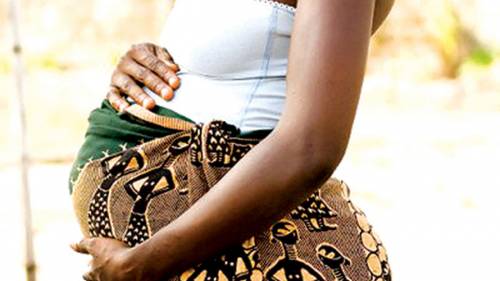Why Infertility Rate Rising Drastically — Gynaecologist Speaks
Posted by Samuel on Fri 03rd Mar, 2023 - tori.ng 
Dr Jean Nassar, the Consultant Obstetrician and Gynaecologist, has talked about fertility.
The doctor said that lifestyle and environmental factors such as poor diet, smoking and pollution are having severe impacts on fertility.
Nassar, with specialisation in In-Vitro Fertilisation, said in recent years, the rate of infertility has increased drastically not only in Nigeria but worldwide.
According to the World Health Organisation, infertility is a disease of the male or female reproductive system defined by the failure to achieve a pregnancy after 12 months or more of regular unprotected sexual intercourse.
Speaking in an interview with PUNCH HealthWise, the gynaecologist who is the Head of the IVF unit at St. Georges Hospital University Medical Center in Lebanon, stated that though infertility rates might be increasing, there are however, many effective treatments available depending on the cause of infertility.
The fertility specialist explained, “There are several factors that may contribute to this increase including delaying having a child for women pursuing their education, career or due to economical reasons.
“However, environmental and lifestyle factors such as pollution, poor diet, smoking, obesity, and excessive alcohol intake, all hurt fertility.
“Lifestyle factors have an impact on our fertility. So it is important to focus on healthy habits such as: eating a healthy diet to maintain a normal Body Mass Index, avoiding smoking, reducing alcohol consumption, exercising regularly and managing stress.”
According to him, maintaining a healthy lifestyle can help to improve an individual’s fertility.
Nassar, however, said the best way to preserve fertility is cryopreservation, especially for women who want to preserve high-quality eggs before their reproductive clock starts ticking.
WHO says infertility affects millions of people of reproductive age worldwide – and has an impact on their families and communities.
Estimates by WHO suggest that between 48 million couples and 186 million individuals live with infertility globally.
The global health body pointed out that addressing infertility could also mitigate gender inequality.
“Infertility has significant negative social impacts on the lives of infertile couples and particularly women, who frequently experience violence, divorce, social stigma, emotional stress, depression, anxiety and low self-esteem,” WHO added.
Although there is no official data on the number of Nigerians battling infertility, it is estimated that one in every four Nigerian couples (25 per cent) will experience a problem making a baby and may require assisted reproductive techniques such as IVF.
The maternal health expert, who also works at One Wellness Centre, Lagos, stated that besides eating a healthy diet, regular checkups could help identify the cause of infertility early, adding that early detection leads to better treatment outcomes.
Giving insight into treatments available for infertility, the gynaecologist said, “In some cases, surgery may be required before starting infertility treatment.
“Note that infertility treatment should be different from one couple to another based on several criteria we assess during our consultation.
“The results of the tests we request to propose a tailored plan based on the needs of the couple and their medical conditions.
“As a fertility centre, we offer all types of treatment such as programmed intercourse, intrauterine insemination, intracytoplasmic sperm injection, surrogacy, donation and cryopreservation.”
Nassar said all the infertility treatments were safe procedures for the embryos and the women undergoing the procedure.
He however added, “The overall safety of these procedures depends on the experience of the physician, qualified medical team and the laboratory.
“Some of the risks linked to IVF treatment could be multiple pregnancies due to the transfer of multiple embryos and Ovarian Hyperstimulation Syndrome in rare cases that can be prevented by an expert physician.”
Continuing, the fertility specialist said while IVF is often a treatment for infertile couples, it could also be used for other situations.
“The most common one is for couples who have genetic disorders that could be passed to their children; in this case, IVF with preimplantation genetic testing is recommended to transfer only genetically normal embryos.
“Also, IVF with PGT is used for those who want a specific gender for the baby. In addition, IVF is advisable for couples who want to do surrogacy with their gametes,” he said.
On the myths surrounding IVF babies, that they are not medically strong and healthy as other babies, the gynaecologist said there was no evidence that babies conceived through IVF are less medically strong than babies conceived spontaneously.
He noted that research had shown that babies born through IVF need the same monitoring as babies conceived naturally.















































